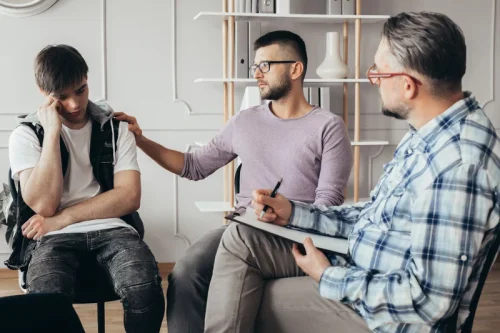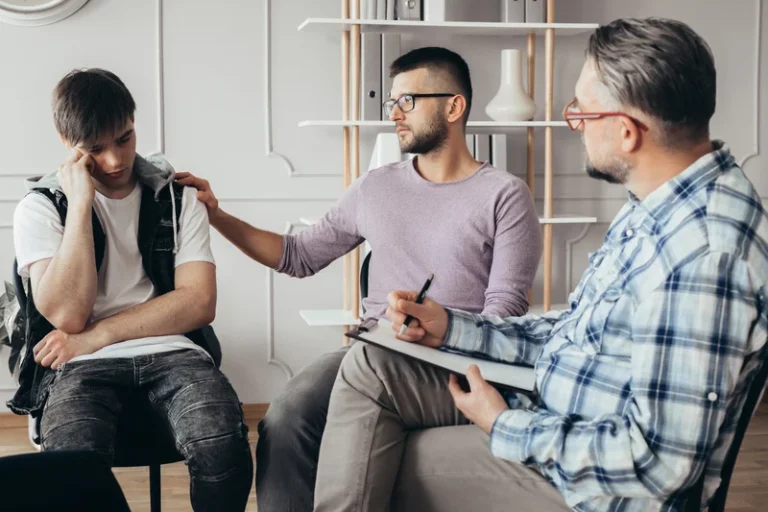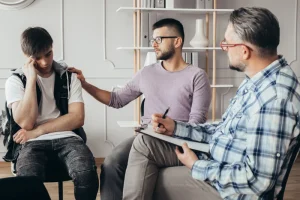
Therapists teach clients skills to recognize high-risk situations, cope with cravings, and plan responses. Community-based groups really boost substance abuse treatment by focusing on local cultural issues and creating a strong support network. This sense of belonging helps participants find relevant recovery strategies that work for them. Building strong support systems through peer networks, family involvement, and community-based groups is essential for long-term sobriety. Self-reflection activities such as journaling exercises, gratitude circles, and visualization techniques further enhance personal growth and emotional healing.

Roleplaying
From addressing trauma to navigating relationships, these groups provide a space for candid conversations. Adventure therapy and outdoor activities take recovery out of the meeting room and into the great outdoors. From rock climbing to wilderness expeditions, these groups use nature as a backdrop for personal growth and team building.
Diphenhydramine Addiction: A Personal Journey Through Over-the-Counter Dependence
Cognitive-behavioral techniques play a central role in helping clients understand the relationship between their thoughts, emotions, and behaviors. By identifying negative thought patterns that drive addiction, clients learn to challenge and replace them with healthier alternatives. Based on the initial assessment and defined goals, therapists develop a personalized treatment plan that outlines specific therapeutic approaches and interventions tailored to the client’s needs. This plan might include cognitive-behavioral techniques, motivational strategies, and other methods relevant to the individual’s unique challenges. Visualization can also enhance emotional healing by allowing individuals to explore their goals and dreams in a supportive environment.
CBT For Substance Abuse Recovery: Does It Work?

There’s something primal and cathartic about pounding out a rhythm with others. It’s a physical release that can help process emotions and build connections. Plus, it’s a great way to Oxford House work out any pent-up frustrations without breaking anything valuable.

This topic highlights the importance of good sleep hygiene and offers techniques, such as setting a consistent bedtime, reducing screen time, and practicing relaxation exercises, to improve sleep quality. This discussion covers techniques for recognizing, managing, and releasing anger, such as deep breathing, counting, and physical exercise. Substance use is often linked with other harmful habits, which can hinder recovery. This topic helps members identify these habits and work to replace them with healthier ones.
Hope in Addiction Recovery: Finding Light in the Darkest Times
- By connecting with others who have faced similar challenges, individuals can gain encouragement and motivation to continue their recovery journey.
- Group therapy is a vital aspect in all levels of addiction treatment and continued care, including outpatient treatment and sober living.
- Family involvement helps rebuild trust and communication, creating a more supportive environment for the individual in recovery.
- Members often feel less alone in their struggles when they hear others share similar experiences.
Share with the group a song with a real meaning for you and explain why this song is so important. Listen to the songs from each individual and appreciate the wide range of inspirations and explanations for why these songs were brought https://ecosoberhouse.com/ to the group therapy circle. Your nutrition goals, how you would like to eat compared to how you eat, what you shouldn’t eat, and your relationship with food are all excellent starting points for a bigger conversation. Here are some group therapy ideas for addiction that you may come across in your exploration of it as a tool to help overcome what you’re going through.
Substance Abuse Worksheets Bundle PDF Templates
- Encouraging members to share their personal stories helps build trust, empathy, and connection within the group.
- In this post, I highlight 50 Substance Abuse Group Therapy Activities for Recovery that you can use with your clients.
- Question balls are a resource that group leaders may use to get topics of conversation going.
- This topic allows members to share funny stories, discover joy in small moments, and build bonds with others through laughter.
- Role-playing offers a safe space for group therapy participants to confront their fears and negative thoughts.
It’s important to have moments of levity during addiction recovery to help build camaraderie and enthusiasm, and playing charades can provide some. It supports well-being and helps prevent people from becoming overwhelmed or giving in to triggers. Encouraging ongoing participation and support is crucial group therapy ideas for addiction for long-term success. Recovery is not a destination but a journey, and these innovative group activities provide waypoints and rest stops along the path.
What is the primary benefit of group therapy in substance abuse treatment?

Each step works in sequence to build coping skills, modify behaviors, and enhance the client’s ability to manage triggers and prevent relapse. These therapies focus on building coping skills, reframing harmful thought patterns, and improving emotional resilience to support long-term recovery. Each type offers a unique framework for addressing the complex nature of addiction and is tailored to meet the specific needs of each client. These therapies are highly effective in reducing relapse rates and improving overall mental health by helping clients build resilience and adopt healthier coping mechanisms. This is followed by goal-setting, where the therapist and client define clear, achievable recovery goals.
Practicing Deep Breathing Techniques

Additionally, you can use substance abuse group therapy activities for teens if you are working with a younger population. This gives the Counselor leading the group an opportunity to tailor the group activities to the current concerns of the group members. Substance abuse group activities create a supportive environment that empowers individuals on their path to recovery. These 50 activities build practical skills and encourage self-discovery, resilience, and meaningful connection with others. Through structured, thoughtful activities, members gain the confidence and tools needed to overcome challenges and celebrate victories, creating a foundation for a fulfilling life in recovery.
